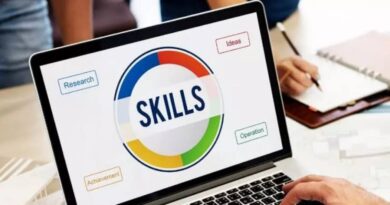The importance of social media on usa education…
Social media has become an integral part of education in the USA, offering numerous benefits and opportunities for students, educators, and institutions alike. Here are some of the key ways in which social media impacts education in the USA:
Enhanced Communication and Collaboration: Social media platforms such as Twitter, Facebook, and LinkedIn facilitate communication and collaboration among students, educators, and academic communities. They provide channels for sharing ideas, resources, and information, fostering a sense of community and enabling networking opportunities.
Access to Educational Resources: Social media platforms serve as repositories of educational content, resources, and learning materials. Students and educators can access a vast array of educational videos, articles, tutorials, and online courses on platforms like YouTube, Khan Academy, and Coursera.
Engagement and Interaction: Social media platforms offer interactive features such as comments, likes, shares, and polls, which enhance engagement and interaction in educational contexts. Educators can use these features to encourage participation, solicit feedback, and gauge student understanding.
Professional Development: Social media platforms provide opportunities for professional development and continuous learning for educators. They offer access to professional networks, communities of practice, and educational conferences, enabling educators to stay updated on the latest trends, research, and best practices in their field.
Promotion of Educational Events: Social media platforms are powerful tools for promoting educational events such as seminars, workshops, conferences, and webinars. They allow institutions to reach a wider audience and attract participants from diverse geographic locations, increasing the visibility and impact of educational initiatives.
Student Engagement and Support: Social media platforms can be used to engage and support students outside of the classroom. Educators can create online discussion groups, virtual office hours, and peer-to-peer support networks to facilitate communication, collaboration, and academic assistance among students.
Real-World Connections: Social media platforms enable students to connect with experts, professionals, and practitioners in their field of study. They can follow industry leaders, join professional groups, and participate in online conversations, gaining insights and perspectives from real-world practitioners.
Cultural Exchange and Diversity: Social media platforms facilitate cultural exchange and diversity by connecting students from different backgrounds, cultures, and geographic locations. They provide opportunities for cross-cultural dialogue, international collaboration, and the exploration of diverse perspectives and experiences.
Citizenship and Digital Literacy: Social media platforms play a role in promoting digital literacy and responsible citizenship among students. Educators can teach students how to critically evaluate information, navigate online spaces safely, and engage in civil discourse in digital environments.
Feedback and Assessment: Social media platforms can be used for providing feedback and assessment in educational settings. Educators can use online quizzes, surveys, and peer evaluations to assess student learning and provide timely feedback on assignments and projects.
Overall, social media has a significant impact on education in the USA, offering opportunities for communication, collaboration, learning, and professional development. While social media presents challenges such as privacy concerns, information overload, and digital distractions, its benefits in education are undeniable, and its role is likely to continue to evolve in the years to come.



